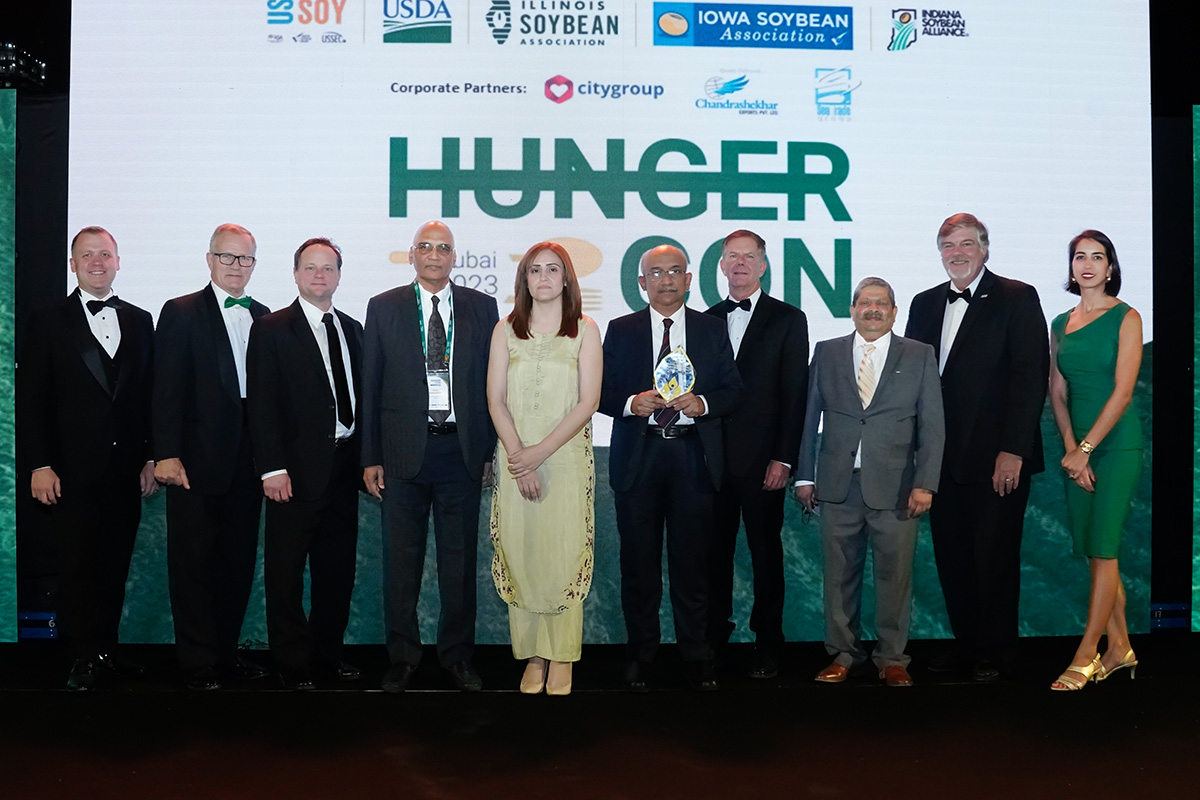
Over a decade ago, Bangladesh made a groundbreaking decision to approve its first biotech-derived vegetable crop, Bt brinjal, paving the way for advancements in agricultural science. The Bangladesh Agricultural Research Institute (BARI) emerged as a leader in the field, receiving the prestigious ‘Foodfluencer of the Year’ award at the recent HungerCon event in Dubai.
BARI, an innovative national research institution, was instrumental in the development of four varieties of Bt brinjal, namely BARI Bt Begun-1, BARI Bt Begun-2, BARI Bt Begun-3, and BARI Bt Begun-4, through a collaborative effort with Cornell University, supported by the United States Agency for International Development (USAID). The approval for the commercial cultivation of Bt brinjal in Bangladesh was granted on October 30, 2013.
The institute is also on the verge of introducing biotech-derived potatoes resistant to late blight, a move that could significantly reduce the financial burden on farmers combating this fungal threat.
Commenting on the achievement, ‘Right To Protein,’ an awareness initiative promoting the importance of protein consumption, stated, “Renowned for groundbreaking innovations such as Bt eggplants and late-blight resistance potatoes, BARI, under the strong leadership of Dr. Debasish Sarker, Director General, and Dr. M A Yousuf Akhond, Director of Research, truly distinguishes itself in the field of agricultural excellence.”

At right, Dr. M A Yousuf Akhond, director of research at BARI, accepts the 2024 Foodfluencer of the Year award at ceremony in Dubai.
HungerCon, a flagship initiative of the United States Soybean Export Council (USSEC), acknowledges visionaries and institutions contributing to nutrition awareness and food security. BARI’s recognition as the ‘Foodfluencer of the Year’ underscores its significant contributions to agricultural innovation.
The success of BARI’s agribiotechnological initiatives demonstrates the positive impact of informed decisions in the agricultural sector. As Bangladesh continues to innovate, it sets a compelling example for sustainable and resilient agricultural practices, contributing to global food security.
The Insect-Resistant Eggplant Partnership is funded by USAID as part of Feed the Future, the U.S. Government’s global hunger and food security initiative. It is the latest in a series of USAID-funded projects led by Cornell that have strengthened capacity to develop and disseminate Bt eggplant in the Philippines and Bangladesh, first through the Agricultural Biotechnology Support Project II (ABSPII) and then the Feed the Future South Asia Eggplant Improvement Partnership and the current IREP project.
For Media Inquiries:
Sadique Uddin
Senior Specialist, Farming Future Bangladesh
Mobile: 01792119777
Email: sadique@farmingfuturebd.com




